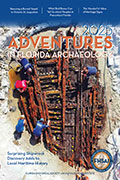Adriana Collado was born in Havana, Cuba, in 1966. Seven years removed from the start of the Cuban Revolution, Adriana recounted her upbringing in a society transitioning from a capitalistic free model to a communist oriented world. She emphasized how the state forced children to prioritize the leader and follow politics more than anything, including their own families. The idea of the Revolution enticed her parents to stay on the island, as promises of improved healthcare enamored her psychiatrist father, and covering such an unprecedented political and social experiment attracted her journalist mother. Adriana ultimately assumed both her parents’ careers, first attempting psychiatry by attending medical school in Cuba. She explained how the 1983 US invasion of Grenada—in which the Cuban regime claimed as their territory—marked her “wake-up call,” as the government expelled her medical student classmates for opposing the state’s decision not to return the Cubans who resided in Grenada, which included the students’ parents. Discontent with this incident, Adriana left medical school and transitioned into studying journalism in Cuba. She recalled a particularly unique experience in which she confronted Fidel Castro and the Cuban state during a meeting in which she and other journalist students questioned media practices and standards in a communist society. In 1990, Adriana fled the island for fear of persecution since she spoke against the regime during that meeting. She emigrated to New York and lived there for the next fifteen years. She recollected memories about 9/11 and her experiences working in several Spanish newspaper outlets. In 2005, Adriana moved to Orlando to join the Spanish division of the Orlando Sentinel. In 2017, Adriana returned to school to fulfill her lifelong passion of working in the field of psychology/psychiatry. Adriana shared her two-decade observations of Orlando’s changing cultural and ethnic landscape. She underscored the “Other-ing” process she experienced in Orlando and the profound nuances that most immigrants deal with in navigating different societies and cultures and their own fluid identities within them.







